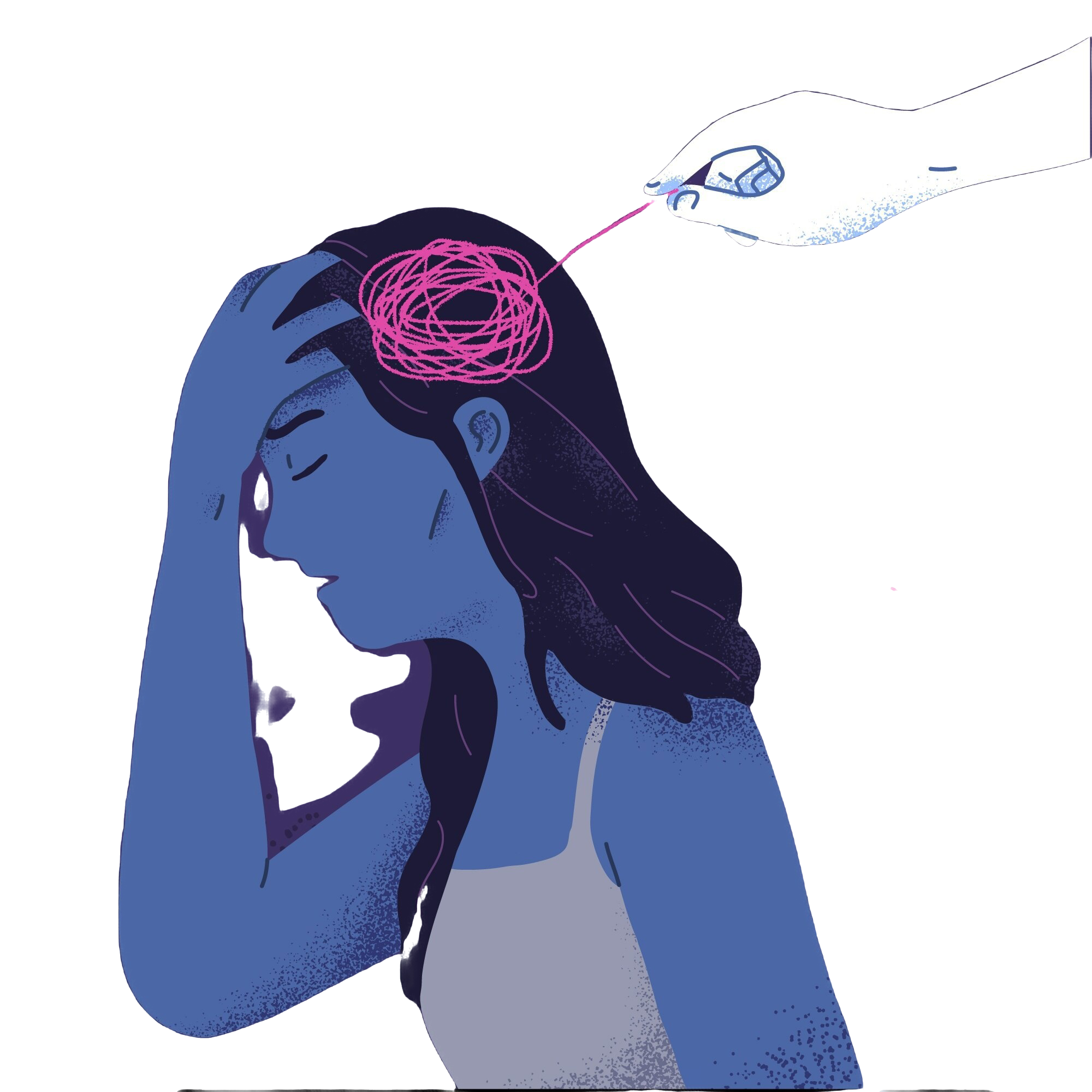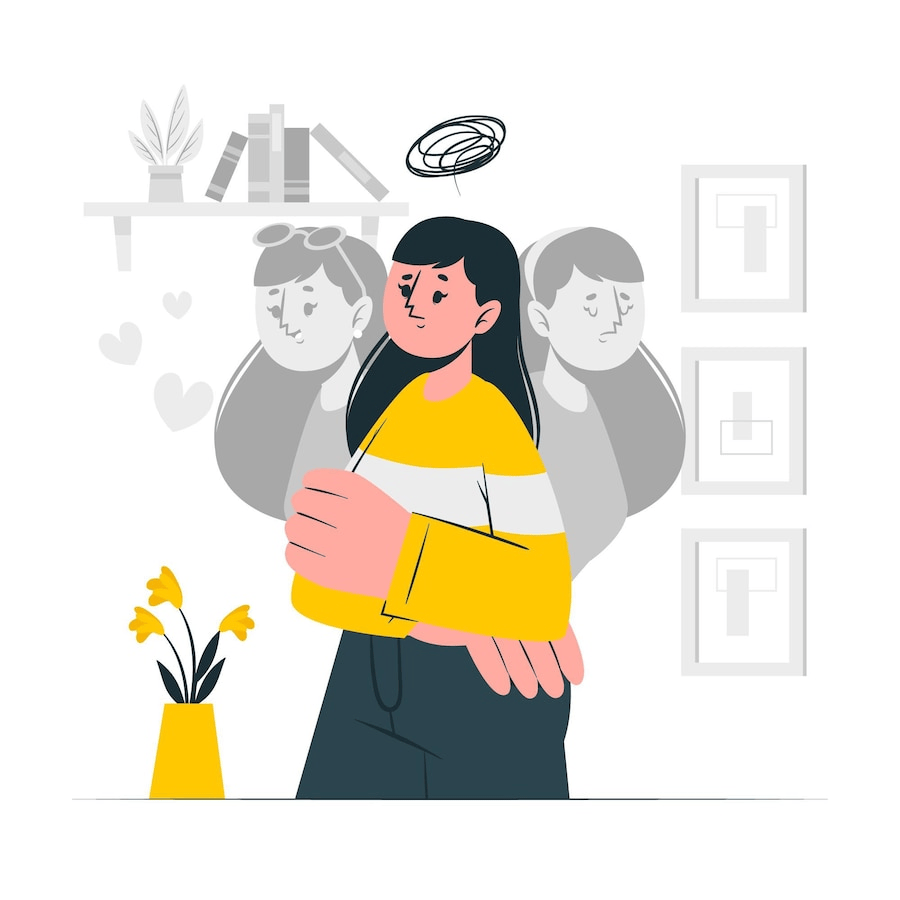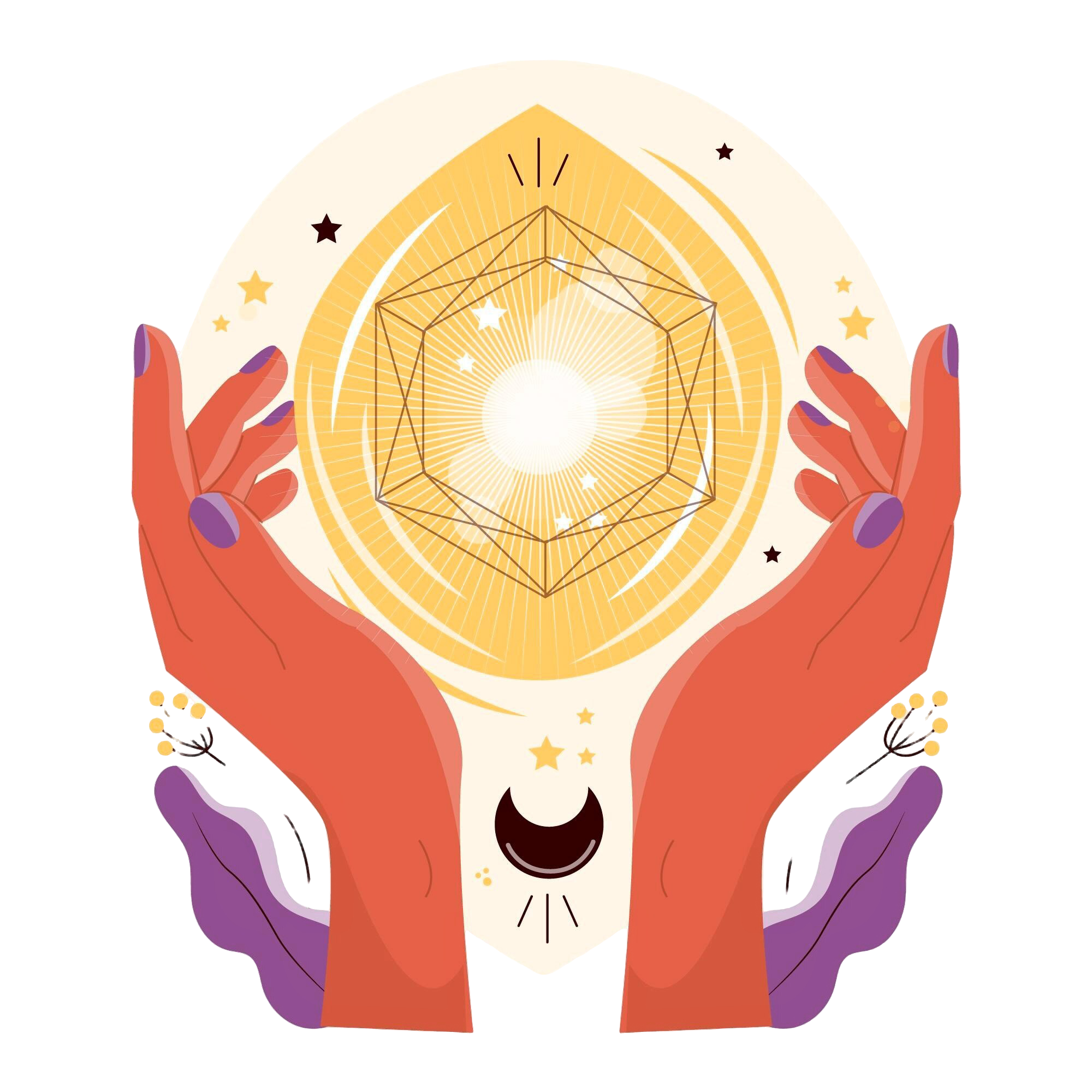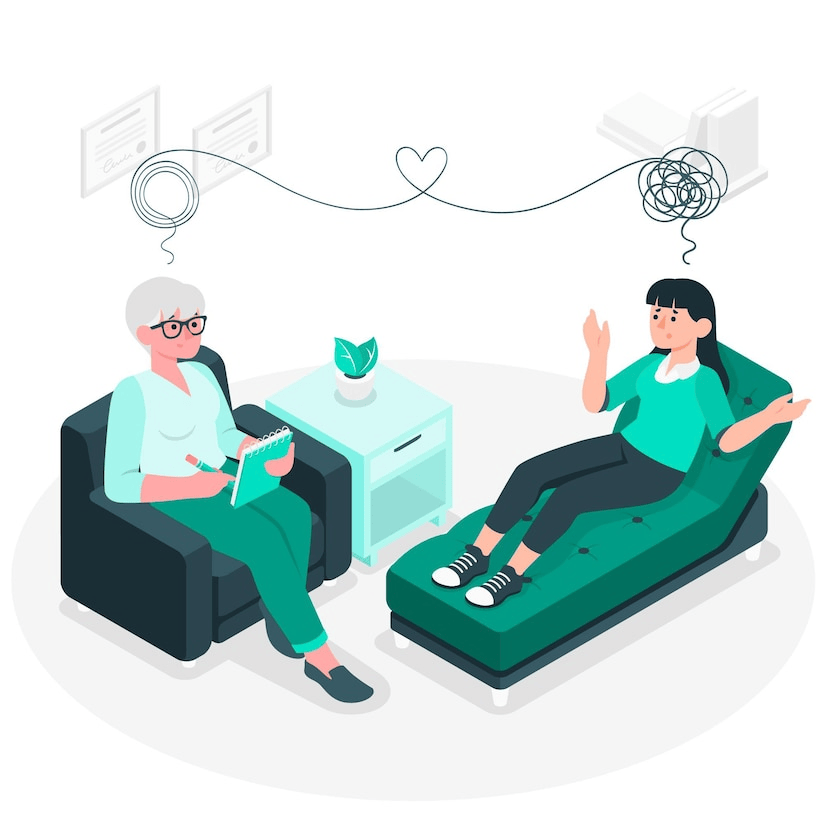Therapy for Complex Trauma and Grief



Understanding Trauma
Trauma is not just a memory, but a complex experience stored in both mind and body. Our approach recognizes the profound impact of traumatic experiences.

Holistic Healing
We provide a compassionate, body-informed approach that helps you navigate and integrate traumatic experiences at your own pace.

Personalized Support
Each trauma journey is unique. We offer tailored therapeutic interventions that respect your individual experience and healing path.
Our mind and feelings are like a house: a safe space to just be. When difficult and scary incidents happen in our lives, it's like a storm hitting the house. Things change and make us feel as if the safe space has been taken away. In those times, seeking help from a specialized psychologist for complex trauma and grief may clear the way back home.
One might go through a single big storm, like a natural disaster or a bad accident. This can cause a lot of damage, which is described as Post-Traumatic Stress Disorder (PTSD).
But what if the storms aren't just one big one, but persistent, maybe for a long time, like someone is constantly throwing rocks at it? That's more like Complex Trauma.
What's Complex Trauma?
Complex Post-Traumatic Stress Disorder (CPTSD) is a term used for the challenges that come from prolonged exposure to trauma, meaning it happened for a long time, not just once.
Because it happens over a long period, it affects a lot more things than just one event might. CPTSD involves a complex range of symptoms that go beyond what you might see in typical PTSD.
Complex Trauma may affect:
- Your identity
- How you see yourself or who you feel you are
- Your self-esteem, how much you value yourself
- Your relationships with others
These repeated storms can shake the very foundation of your house, instilling fears that it may not stay standing and make it difficult to feel safe inside or invite others over. That's how complex trauma affects a person's inner world and connections with others.
What's Trauma-Informed Therapy?
CPTSD-informed therapy is seen as really important, or "vital," because it's designed to help people deal with these multifaceted impacts of this kind of trauma. It focuses on the enduring effects of complex trauma to help people recover more effectively.
This type of therapy aims to:
- Create safe space for people to explore their experiences and heal
- Help them build resilience (which is like the ability of your house to withstand future storms)
- Ensure overall well-being
Many specific situations can lead to complex trauma, especially in a place like India. Let's understand this with an example from the lens of family dynamics in Indian urban families and how they contribute to complex trauma and related issues.
Indian culture often promotes a hierarchical collectivistic society, meaning there's a strong emphasis on group identity and clear structures or ranks within families and society. In this culture, a person's sense of identity is often based on their relationship with others. Parenting styles can lean towards authoritarian methods for discipline.
The multiple factors within these family dynamics like attachment patterns (how you form bonds with others), authoritarian parenting, a lack of individuation (not being encouraged to develop your own separate identity), intergenerational transmission of trauma (when trauma effects are passed down through families), marital discord (parents having a difficult relationship), and the structure of nuclear and extended families (who lives together and how they interact), can all play a role in developing complex trauma.
It's like your safe space being threatened within the family structure itself, and these specific family patterns and historical difficulties make those storms even harder to handle.
Addressing family dynamics and working on repairing attachment bonds are mentioned as important goals in therapy for complex trauma in this context.
Our therapists in India have experience working with traumatic stress and trauma healing. Cultural competency in healthcare, in general, is about professionals being able to understand and respect the varied needs, beliefs, and values of the people they serve, especially traumatized individuals, because cultural factors play a big role in how people experience, cope with, and recover from trauma.
What's Grief?
Grief is different from trauma, although sometimes they can overlap. Grief is what happens when you lose someone you care about. People often describe it as one of the most profound and heart- wrenching experiences anyone can go through.
It's not just feeling sad; grief is a complex and multi-dimensional emotion. This means it has many different layers and parts to it. When you're grieving, you might feel a wide range of feelings, like sadness (of course!), but also anger, guilt, anxiety, and even relief.
Some people feel like they are in a fog. Grief can also affect your body, causing physical symptoms like:
- Trouble sleeping (sleep disturbances)
- Not wanting to eat (loss of appetite)
- Feeling pain in your body (chronic pain)
- Stress and anxiety are also common when you're grieving
Culturally Sensitive Approach
Grief is a journey, not a destination, and there's no set timeline for how long it takes to heal. It's something you work through step by step, not something you just get over.
For example, parents who lose a child or had a stillbirth suffer from disbelief, severe pain, and helplessness. Mothers often express their grief openly, sometimes even fainting, while fathers also felt severe grief but don't always show it openly.
Some parents feel guilt or blame themselves or others for the loss. The loss could also affect their relationship as a couple, sometimes causing difficulties. Many parents could also experience trouble sleeping, eating, and other psychological disturbances.
In another example of how situational and specific grief can be, consider this:
During the pandemic, restrictions made it hard to follow the traditional Hindu death rituals, which are usually a way for families and communities to mourn together. This forced people to grieve alone instead of grieving together.
Not being able to participate in ceremonies like "Shraddh" (a final feast in remembrance), meant that mourners lost the chance to grieve as a group, which normally helps them feel better and accept the loss.
When the pandemic stopped these rituals, it made the grief harder because people couldn't get the sense of closure or healing that the physical acts of mourning and collective support usually provide. This shows how important cultural practices are in how people experience and cope with grief.
Talking Beyond Stigma
Some experts might use words like depression or post-traumatic stress to describe these feelings, the people often used their own words, like "chinta" (worried). This is important because using words like mentally ill can cause even more unfair treatment and shame in India.
Therapy can offer a safe place to talk about feelings and learn ways to cope. There are different types of therapy that can help. Therapists can use approaches like CBT, DBT, Motivational Interviewing, SFBT, ACT, and EMDR to help people process their emotions and develop healthier ways to handle difficult feelings.
Both complex trauma and grief can be very hard, affect your mind and body, and are often shaped by the culture and family you live in. Getting help from trained professionals is important for healing from both. Click on "Schedule Consultation" below or on "Book Now" to take the first step right now.
Healing Stories
"Working through my trauma has been challenging, but this program helped me rediscover my inner strength. The personalized approach made me feel seen and supported throughout my healing journey."
Anonymous Client
"I was skeptical about therapy at first, but the holistic approach here truly transformed my understanding of my experiences. I've learned to embrace my resilience and find peace."
Anonymous Client
"After years of struggling silently, I finally found a safe space to process my trauma. The compassionate therapists helped me reconnect with myself and rebuild my life."
Anonymous Client
WhatsApp Community
Join our supportive WhatsApp community
Connect with others on similar healing journeys, share experiences, and receive additional support.
Begin Your Healing Journey
Every step towards healing is courageous. We're here to support you with compassion, expertise, and understanding.
